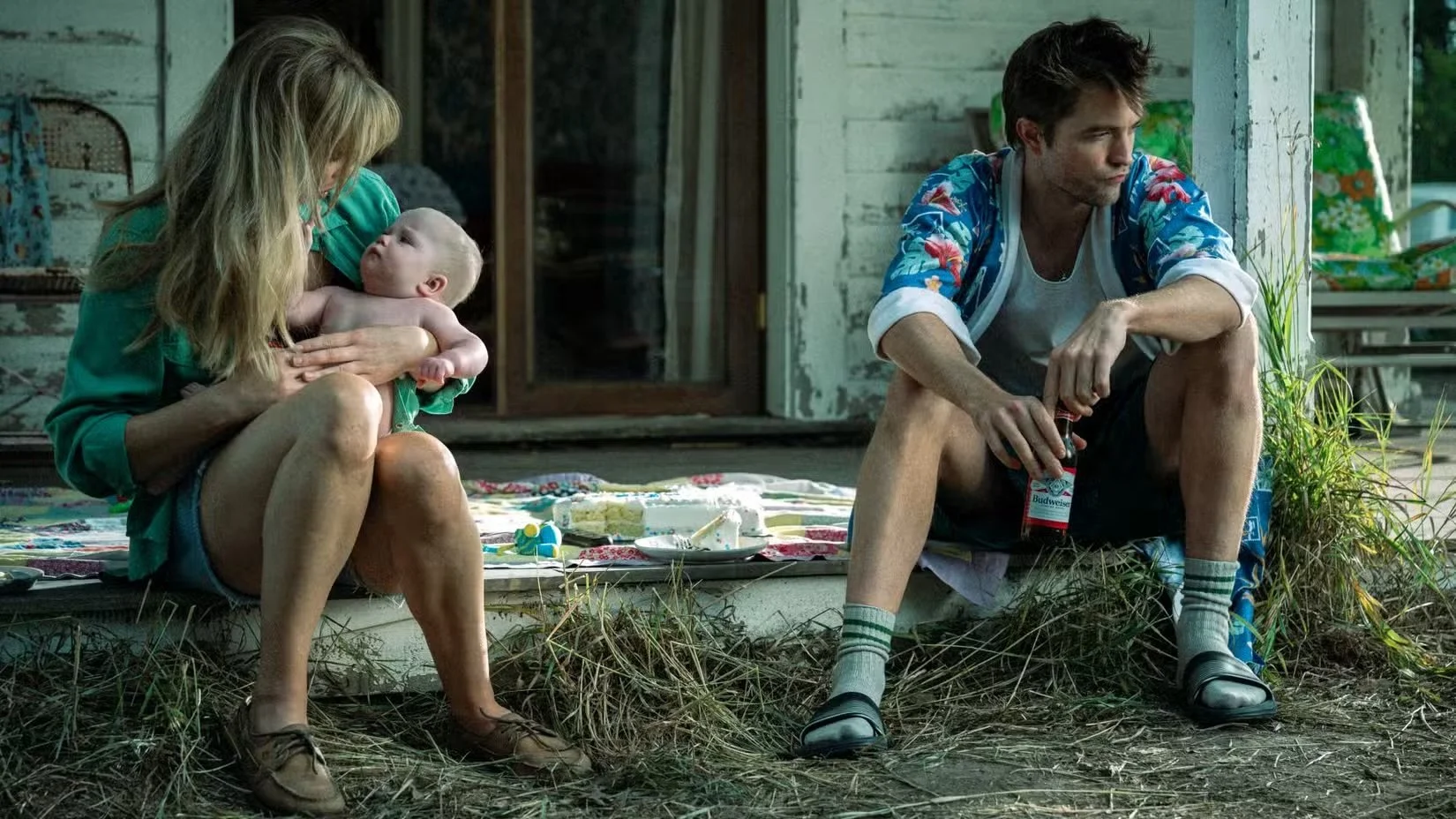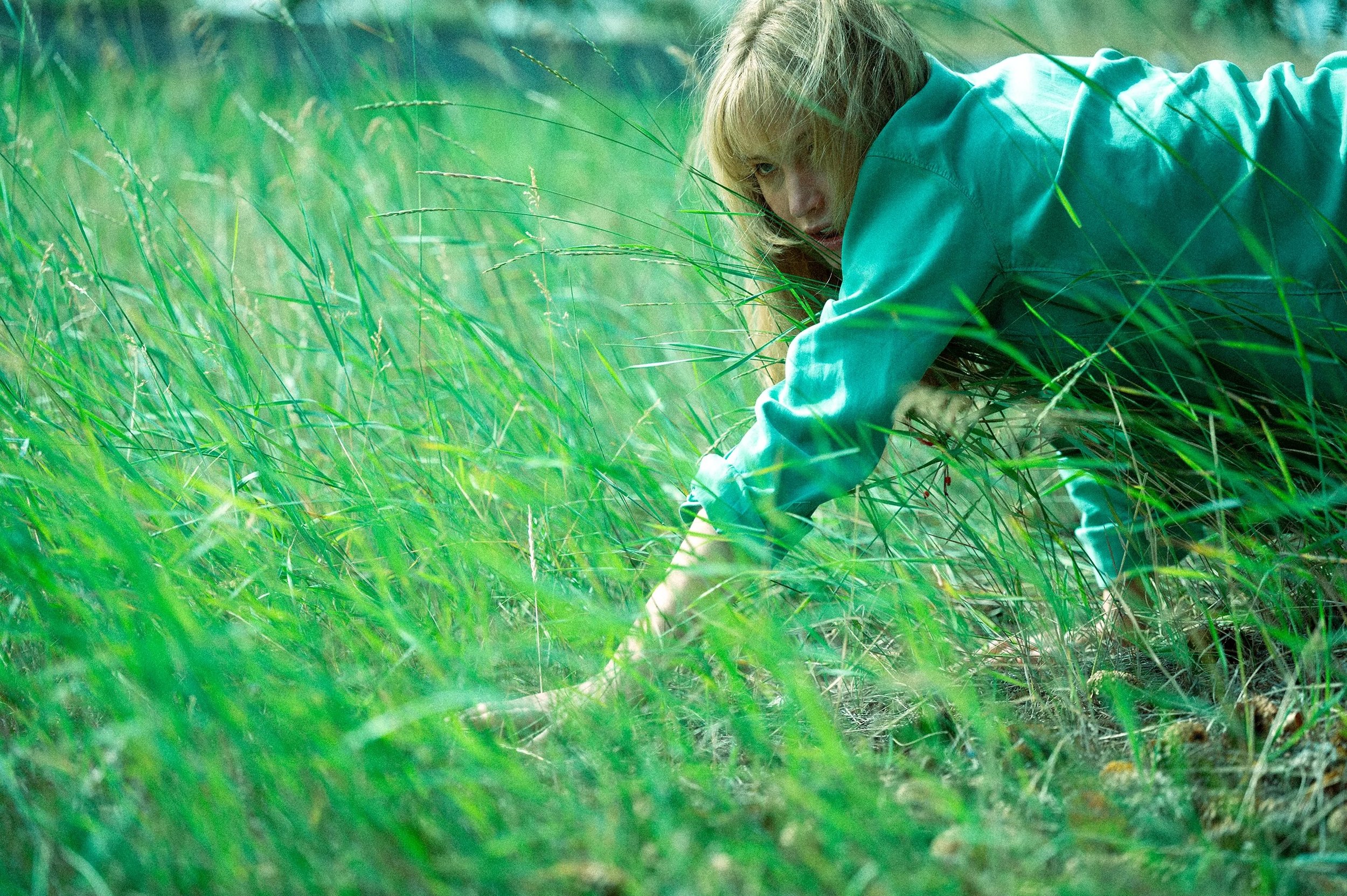“Die, My Love” Knows Motherhood is Hard, but Doesn’t Know What to Do About it
To be a parent is to take on a thankless, unpaid job. It’s long hours with fleeting, precious sleep ruined by the wailing screech of a baby who has pooped its pants. There’s nothing glamorous about it, despite what Momfluencers would like us to believe. Director and co-writer Lynne Ramsey is on the other end of the Momfluencer spectrum with her latest film, Die, My Love. The movie is adapted from Ariana Harwicz’s 2012 novel, Matate, amor, and shows the reality of parenthood coupled with the isolation of relocation from a bustling city to a quiet, rural life.
Young couple Grace (Jennifer Lawrence) and Jackson (Robert Pattinson) have left New York City for a small house in Montana. The home once belonged to Jackson’s family, and his mother () and father () still live nearby. Soon after moving, Grace and Jackson welcome a baby to their little family. Unfortunately, this moment of happiness is overshadowed by a cloud that’s steadily growing over Grace. She’s a writer, but the relocation and new parenting responsibilities are taking up much of her time and mental capacity. The longer the couple stays in Montana, the more Grace’s mental health deteriorates.
Courtesy of MUBI
Anyone who has seen one of Ramsey’s previous films knows that she likes to exist in the thorny, ugly, complications that make up life. Try as we might, nothing is cut and dried. There’s a messiness that permeates everything we touch, and parenthood is no different. Ramsey’s We Need to Talk About Kevin is one of the starkest, most frightening portrayals of postpartum depression and childrearing ever put on film. We Need to Talk About Kevin is almost a decade-and-a-half old now, so the idea of Ramsey returning to similar themes in Die, My Love was an enticing selling point. What has she learned over the years? How has her voice as a filmmaker changed, and how will that affect the way she portrays this real affliction that women rarely talk about?
The answer is not the one this viewer was looking for. Die, My Love doesn’t have much to say other than that the arrival of a baby has the ability to fundamentally fracture people and their mental health. Make no mistake, there’s a frenzied nature to the film that captures the instability Grace and Jackson are feeling, but there’s also a disconnecting sensation that doesn’t allow us to enter Grace’s mind. We know she’s struggling. We can see that, but there’s little to latch onto that allows the audience to grasp what Grace is enduring. Whether that be because of Lawrence’s performance, the intermittent dialogue, or some combination of the two, what remains is a film that only lightly touches on the pain motherhood can create.
MUBI — Credit: Kimberley French
Last year, Amy Adams starred in Nightbitch, another adaptation of a novel that looked at the pain associated with motherhood and postpartum depression. In Nightbitch, Adams’ character begins to slowly morph into a dog, allowing her an animalistic sense of freedom she feels she cannot have as a mother. If any postpartum movie should be about a new mother turning into a dog, it should be Lawrence’s Grace in Die, My Love. So much of Lawrence’s performance is silent and physical, throwing her body around, dancing, thrashing, howling. It’s clearly a release, but one that feels hollow because we know so little of Grace as a character. However, had Ramsey taken a page out of the Nightbitch book, Die, My Love may have a little more of a bite.
Die, My Love is shot on 35mm in 1.33:1 Academy ratio, which passes Grace’s sensation of claustrophobia on to the audience. The opening scene tells viewers everything they need to know about this couple and their new life. We see a small house, drab in color but well-loved, like a worn-in flannel shirt. Jackson matches the aesthetic in similarly well-loved yet plain clothes. Grace strolls into the house wearing a red skirt that utterly pops on the film. She’s already at odds with this life before it has begun, yet it’s her reality. Die, My Love is a film about a woman who is in desperate need of support. Instead, she’s doused in gasoline and handed a match.
support your local film critic!
~
support your local film critic! ~
Beyond the Cinerama Dome is run by one perpetually tired film critic
and her anxious emotional support chihuahua named Frankie.
Your kind donation means Frankie doesn’t need to get a job…yet.
Follow me on BlueSky, Instagram, Letterboxd, YouTube, & Facebook. Check out Movies with My Dad, a new podcast recorded on the car ride home from the movies.


